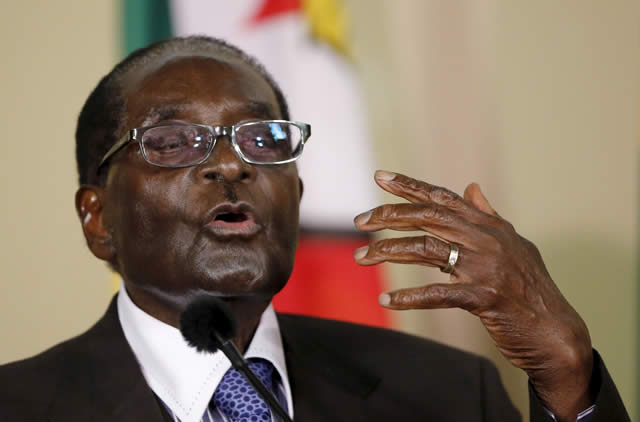Zim churches move into higher education

Stanely Mushava Features Correspondent
If churches were newspaper sections, mainline denominations would probably be the op-ed centrefold while pentecostal denominations would be the showbiz page.
This comparison speaks to the growing popularity of pentecostal churches which somehow has not matched their mainline predecessors’ commitment to education and sustained humanitarian concerns.
Mainline Christian denominations in Zimbabwe are credited for investing extensively in education and health and have lately scaled their efforts to expand options for higher education in the country.
While higher education has come to appear secular by default, the university is originally a Christian institution.
Few observers would guess that the university began as a theological seminary given that different strands of higher education are often invoked as arguments against religion.
However, Christians conceived the university as an institution of theological inquiry and it later evolved to encompass cosmological interests and other disciplines.
Early scientific notables emerged out of this tradition while world-renowned universities such as Oxford University were originally theological seminaries.
Over the years, however, it seemed the church has reverted to its other worldly pursuits and left higher education in the custody of other institutions.
Not anymore. Zimbabwean churches are increasingly investing in higher education, with many colleges and at least five universities running under the Christian banner as at 2015, with at least two of them top of the range.
This may not be altogether novel given that education has always been an integral part of missionary work in Zimbabwe.
Christian denominations have only scaled up this traditional commitment by establishing universities to keep up with the increasingly competitive professional sectors.
At present four universities, Catholic University, the Reformed Church University, Ezekiel Guti University, African University and Solusi University are owned or related to Christian churches.
Whereas Christian colleges consistently rank among the best nationally in countries where they are established such as the U.S, the Christian university is yet to make inroads globally.
In this instalment, Herald Review profiles Zimbabwean Christian universities and maps potential future developments for the tradition.
The Seventh Day Adventist Church, a Protestant denomination, was probably fated to establish Solusi, given its healthy obsession for academic affairs.
The church runs many presses, schools, colleges and universities across the world and, away from school, they are involved with voluminous publications which are at the centre of the church’s evangelistic strategy.
SDA’s inadvertent devotion to Aristotle’s challenge to follow the argument where it leads means they are endlessly writing books, engaging controversies in the academy but also nurturing intellectual culture among its congregants.
The educational arm of SDA, like other churches labouring in the sector, is informed by the need to develop the individual on a holistic level, both culturally and spiritually.
Established in 1994 and generally acknowledged among the best Zimbabwean universities, the story of Solusi University begins exactly a century earlier near Chief Soluswe’s home, 50 kilometres west of Bulawayo.
The Seventh Day Adventist Church whose investment in education and health is legendary established Solusi Mission in 1894, named after the chief who had donated the land.
The station, then the nucleus of Adventist missions, began as the regional training centre from which missionaries were trained, some of them crossing the borders to build schools in neighbouring countries.
The training centre was developed into a teacher training facility to cater for the growing need at Adventist schools in 1929.
In 1952, the church made approved the expansion of the Solusi Mission into a diversified academic centre and in 1956 later the centre acquired a senior college status.
“To enhance the quality of the programme and to facilitate acceptance for postgraduate studies at international universities, negotiations were promptly begun to achieve affiliation with a fully accredited Seventh-day Adventist university in the United States of America (USA),” says the university’s communications department.
It was affiliated to the renowned Andrews University of the Seventh-Day Adventist Church on a contractual basis, initiating a progressive review of the facilities.
The National Council and the Ministry of Higher Education, now Zimche issued a charter establishing Solusi University in July 1994.
Solusi University offers degrees across disciplines and has managed to attracted students from other African countries. It has since discontinued its affiliation to Andrews University but remains on a consistent path to improvement.
The Roman Catholic Church was equally bound to form a university in Zimbabwe given its traditional immersion in the academy. In fact, the earliest universities in were distinctly Catholic.
Like the SDA, the Catholic Church would be boldly on the op-section, given its long-running involvement with the public life of the mind.
Although the University has not grown exponentially like the Africa University and the Solusi University, it remains committed to growth and is 2013-2022 strategic plan looks to enrol 10 000 students up from the current 1 000 it currently enrols.
It offers a BA dual honours for primarily tailored for professionals at its Harare, Bulawayo, Mutare, and Chinhoyi campuses and is looking to set up more in line with its vision to decentralise higher education.
The university is the church’s main priest-training centre but according to its communications centre, plans are afoot to introduce diverse full-time programmes and short courses in line with students’ changing needs.
The Africa University was formed by the United Methodist Church, a denomination which traces its roots back to Oxford students whose contributions to cultural and intellectual life cannot be gainsaid.
The university came about as a result of calls by leaders of the denomination in Africa to establish a Pan-African university.
The university draws a significant 40 percent of its students from outside the country. It is an answer to the call for greater female population at universities as 51 percent of its students are female.
The university is generally considered elitist due to the fees structure and ranks favourably among top six universities according in online ratings.
It aspires to be a world class university and may well be on the path given its impressive array of programmes and conducive facilities.
The Reformed Church University was incepted as Great Zimbabwe University 2004 but was briefly discontinued by the Ministry of Higher Education, pending issues of standardisation.
It bounced back and enrolled its first classes in 2012 with an impressive array of humanities and theology programmes and is due to have its first graduation ceremony later this year.
The University was founded by the Reformed Church in Zimbabwe, arguably one of the most educationally committed universities in Zimbabwe.
It is based at Morgenster Mission in Masvingo, the missionary centre from which the church established many nationally competitive high schools and hospitals across the country, chiefly in the province.
Zaoga’s academic arm, Zimbabwe Ezekiel Guti University is peculiar in that it is the only university founded by a Pentecostal ministry. Hopefully, it opens the way for other charismatic denominations whose are growing in influence but lacking in humanitarian involvement.
Named after the respected apostle who founded its mother church, the Bindura-based university has grown exponentially and offers a range of programmes across disciplines as opposed to the theological specialisation of some Christian universities.
Feedback: [email protected]








Comments